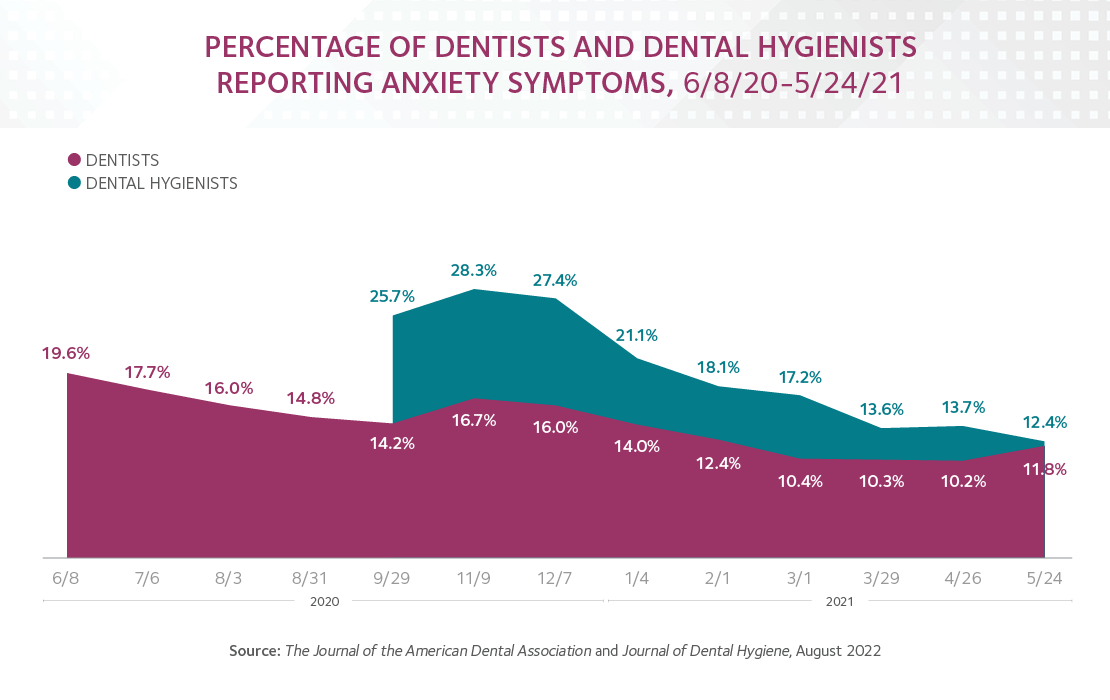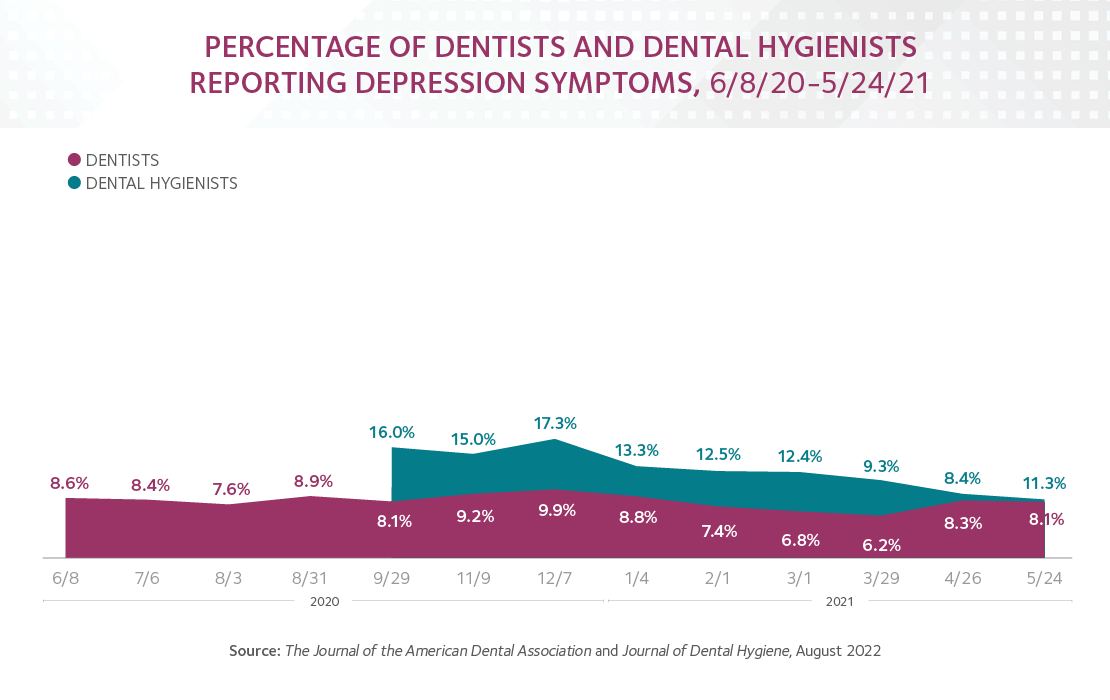Dental professionals on early front lines of pandemic report anxiety, depression
Research published in JADA is first known U.S. study to examine mental health of dental workers during COVID-19

Dental health care workers reported higher rates of anxiety and depression during peaks of COVID-19 transmission among the public, according to a study published in the August issue of The Journal of the American Dental Association.
The one-year study, conducted from June 2020 to June 2021 as part of ongoing research by the ADA and American Dental Hygienists' Association to understand COVID-19's impact on dental professionals, found anxiety symptoms peaked in November 2020 and depression symptoms were at their highest in December 2020 for both dentists and dental hygienists.
Also published by the Journal of Dental Hygiene, it is the first known U.S. study to evaluate the mental health of front-line dentists and dental hygienists during the pandemic. The research included 8,902 dental health care workers who participated monthly in an anonymous, web-based survey.
"The hope is that this is just the first of many steps in monitoring mental wellness of the entire oral care team," said JoAnn Gurenlian, Ph.D., director of education and research for the American Dental Hygienists' Association. "There is much work to be done to dismantle barriers to treatment and prioritize well-being in the oral care setting, as well as look at future research around contributing factors to mental illness that may be unique to these professions."
Between June 2020 and June 2021, 17.7% of dental health care workers reported anxiety symptoms, 10.7% reported depression symptoms and 8.3% reported symptoms of both. Dental hygienists reported higher rates of anxiety and depression symptoms than dentists at each surveyed time point, according to the study.
In November 2020, 17% of dentists and 28% of dental hygienists reported experiencing symptoms of anxiety, which declined to about 12% for both professions in May 2021. Reported depression reached 10% among dentists and 17% among dental hygienists in December 2020 before declining to about 8% for both professions in May 2021.

"Interestingly, dental health care workers reported lower rates of anxiety and depression symptoms than the general public, despite being on the front lines and providing oral health care during the pandemic," said author Stacey Dershewitz, J.D., Psy.D., adjunct professor of clinical psychology and director of the Center Clinic at the George Washington University Professional Psychology Program. "As the pandemic continues, it is critically important that dental health care workers continue to develop their ability to recognize and address signs and symptoms of mental health conditions within themselves and their colleagues, promote healthy work environments, reduce the impact of stress on the profession, and make supports accessible to those who are struggling emotionally."
Some participants' anxiety symptoms decreased after receiving the COVID-19 vaccine. The study — also the first to examine the association between the vaccine and mental health — found 20.6% of unvaccinated dental health care workers who intended to be vaccinated experienced anxiety compared with 14.1% of those who were fully vaccinated.
The study points to the importance of resources and research focusing on the mental health of dental professionals.
"As members of the dental profession, we are committed to improving the oral health of our patients and communities. Furthermore, as health care professionals, we must be committed to our own health and wellness to optimally care for others," said study author Mia Geisinger, D.D.S., professor and director of the Advanced Education Program in Periodontology at the University of Alabama at Birmingham School of Dentistry. "Creating professional environments that allow for open communication about mental health among members of the dental team can reduce the stigma around mental health diagnoses and treatment for dental health care workers."
To read the full study online, titled "US Dental Health Care Workers' Mental Health During the COVID-19 Pandemic," visit JADA.ADA.org.
Other articles in the August issue of JADA discuss the drawbacks and benefits of tricalcium silicate sealers, nonodontogenic orofacial pain, and the impact of disability diagnosis on dental care use.
Every month, JADA articles are published online at JADA.ADA.org in advance of the print publication.



